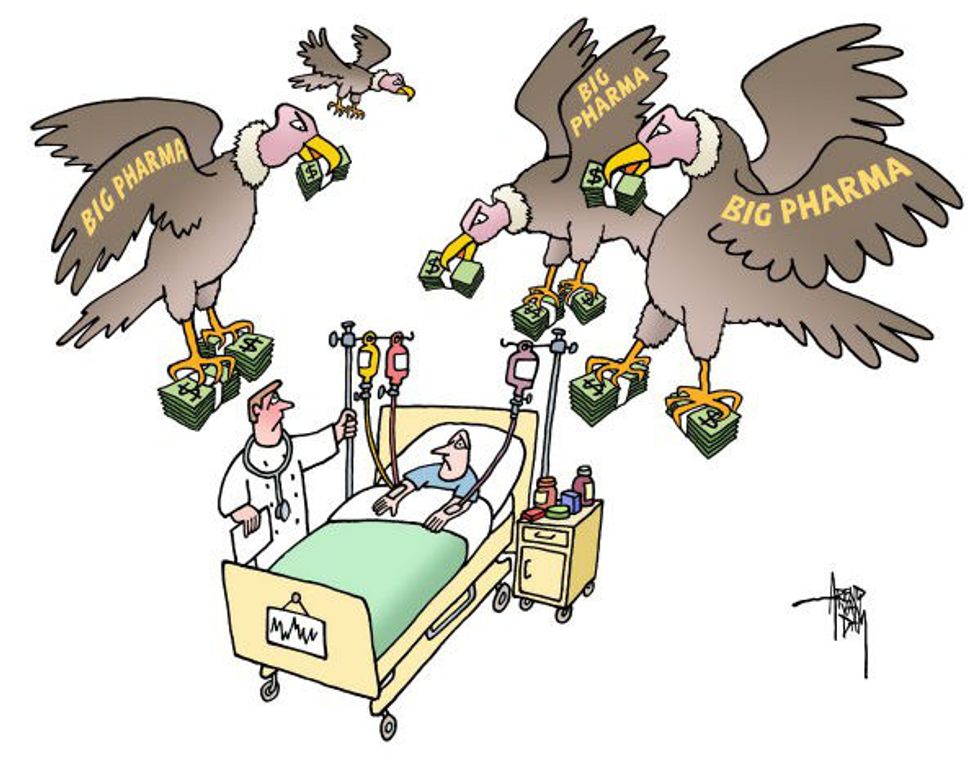We are undoubtedly at or near the dawn of a golden age for biomedical engineering and medicine. Biomedical technology offers a plethora of advantages for friends, family, and (most importantly) us. We are today’s major beneficiaries of the cures, therapies and other forms of relief that are the result of these advances in the medical field. Even so, scientists claim that we have barely scratched the surface of the vast depths of biomedical potential.
Nonetheless, the numerous benefits that are presented by advances in the biomedical technology field do not present themselves to us alone, but along with some fairly grave concerns:
1. Equality of a society that champions personal enhancers regarding the fairness of distribution (who can and cannot afford it).
2. Health and the consideration of the practicality and true benefit-cost of new “self-improvement” drugs.
3. Liberty in regards to the distribution of pharmaceuticals to the public, both forced and coerced.
Human Longevity: The cost of culture for an improved duration of our personal machines.
If society were to truly pursue a state that transcends the physical limitations established by our human anatomy, it would eliminate art and literature. For example, tragedies cannot exist without the general consensus that inequality exists; one of the fundamental aspirations of democratic societies is equality. Inequality must not be an observable truth in order for true equality to exist, which would mean for the absence of tragedies and other forms of literature.

If society were to be equal in health and longevity, the pain that is associated with death and that also serves as the foundation of much poetry would be diluted if not lost. However, scientific progress can still be maintained when addressing current challenges ie. physical health/longevity, mechanic efficiency, and necessary production of resources. The problem here is that humans naturally seek out the differences in one another in order to create a unique image for themselves, so the chances of a society that equally distributes healthcare/pharmaceuticals is unlikely.
The Pharmaceutical Market
The demand for particular drugs rises, so prices rise, naturally. Corporations push for decreased regulation of these pharmaceutical drugs. With decreased regulation, the possibility for the mass production of a drug that could be potentially harmful is increased; so in this case, the crash might not be in economic stability but general health. Even in the event of a “safe” drug being created, a privatized industry would allow for prices to run rampant (leaving the lower economic classes at a loss).
Since American society is in an era of price-cutting, it is hard to see how the general increased cost in medicine will be managed by a worsening health care system. Should it be allowed that citizens with lower economic status have access to significantly inferior options to pharmaceutical medicine, especially if those drugs become generally used as the standard treatment? Norms set by social media require a social safety net that supports programs like Medicaid or welfare would then appear to demand that personalized medicine is accessible to the general public and not just the rich.
What is even more concerning are the social implications presented the broad use of particular drugs such as stimulants and steroids. More specifically, there are possible limitations of freedom with the continued/augmented use of certain pharmaceuticals.
It is in this case that the cliché “everyone is doing it” becomes a major effect on parenting; if all of little Jimmy’s friends are put on Adderall by their parents but not him, are Jimmy’s parents failing to provide him with an equal opportunity to succeed?
The “Restriction of Freedom”
Self-enhancing drugs could, while improving the general standard, severely reduce human potential because of the crutch-like nature of them. This Tragedy of The Commons might result in a society much like that of the one described in Aldous Huxley’s Brave New World, though all dystopias are exaggerations of the worst. However, is there not value in genuine sensations? With broad use of mood-altering drugs, the society could become more lazy when working for “good” feelings. Who needs to work to feel good when you can take a pill, lie on the couch and be sky-high in five minutes? The threat of the general loss of human drive and excellence is a very real possibility when the majority of society spends its free time high.
Health Issues for Safety for our Health-Focused Society
Safety for consumption is one of the immediate objections that offer any biological intervention from the government. Drugs such as steroids, ecstasy and cocaine all present serious long-term ailments. The idea here is that drugs that enhance specific systems found in the body might or will harm another system. Then again, the individual might deem the risk necessary to better them in a given aspect even if they are made aware of those risks beforehand. Even so, the concern for health is not (and should not be) the primary issue, whereas what is already perfected (safe) is. What we have that is already safe and ready for the masses is what concerns society, though there ought to be value placed on the prudent nature of addressing what is in the process of becoming a reality (such as pharmaceuticals that cure dementia).
In any case, there is beauty in what nature has given to our natural beings, and the observably desperate pursuit for a deathless body might be a distraction; there is a difference between surviving and living. Since we live in civilization, we are far from nature; we constantly pursue the advancement of technology and ourselves. If we spend our existence in search of immortality, what then do we have once that transcendence is achieved? Life completely loses its value other than having life itself when death is gone. While, society is not faced with the question now, it very well might be in the near future.
The human condition cannot exist in the perfect society, so we must choose one of two things: humanity or transcendence. If the latter is chosen, man would no longer be living, but simply exist.






















